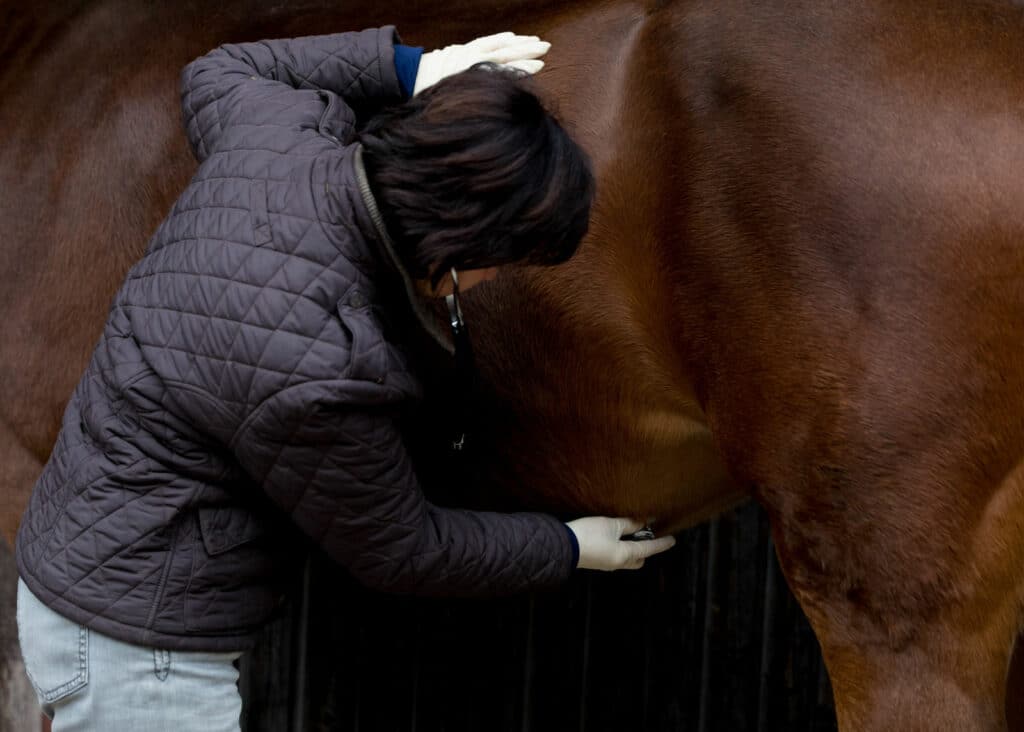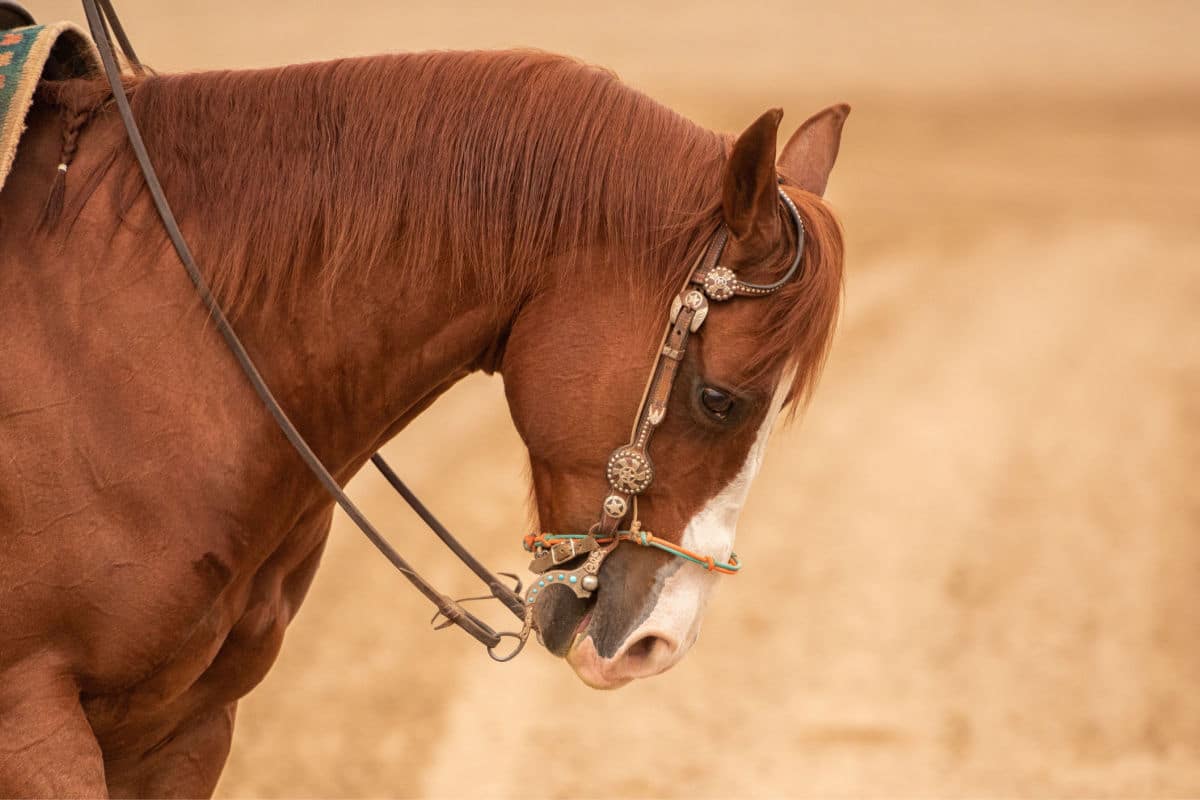Welcome to Parasites and the Equine Gut, our new series that investigates the connection between parasite control and gi tract health — and what we can do to help.
The first article in the series, Part 1: Why Parasites are Still a Problem in Horses discusses why worms are still so common in horses, and why that’s a problem for your horse’s gut. As the series progresses, we’ll walk you through the problems parasites can cause for your horse’s digestive system, what to watch out for, and finally, what you can do about it. Subscribe to the SUCCEED blog to follow along with our Parasites and the Equine Gut series.
Parasites in Horses are Still a Problem
For many horse owners, parasite control goes like this: purchase a few types of paste dewormers, dose each horse in the barn every couple of months, and rotate brands with the intent of killing the full spectrum of parasites. Sound familiar? For many of us, the answer is probably yes.
However, last spring the American Association of Equine Practitioners (AAEP) published the first official set of guidelines for parasite control — and many of us may have learned that we were doing it all wrong. Here’s why.
- The worms we’re targeting have changed. The large strongyle bloodworm is no longer the top parasitic bad guy — small strongyles are. Tapeworms have also become a larger problem.
- Certain parasites have built up a resistance to the wormers (called anthelmintics) we’re giving horses to get rid of them. We’re not monitoring our horses’ parasite loads closely enough, and are instead relying on the calendar to tell us when to worm.
- We’re treating horses by the herd, instead of taking an individual approach to parasite control.
For these reasons, and other management-based reasons (when was the last time you scooped all of the manure out of your paddock, for example?), worms are still a significant problem for horses.
The signs of a “wormy” horse are generally easily observed by the naked eye — a poor coat, ribs showing, a rubbed tail, plus a listless, low-energy attitude — but the effect worms can have on your horse’s gi tract health are much more serious. For that reason, we’ll also be discussing the best ways to measure your horse’s internal health, just in case the signs of an infestation aren’t readily recognized (such as, with a new horse that you just can’t seem to get healthy).
How Worms Can Hurt Your Horse’s Digestive Health
Different parasites affect your horse in various ways. In addition to the physical signs noted above, a heavy infestation of worms causes a variety of problems internally, from stomach irritation and diarrhea, to intestinal obstruction and perforation, ulcers, anemia and colic.
Now here’s the good news: unlike many cases of idiopathic colic, where it’s impossible to determine a root cause, colic caused by parasites is something we can generally avoid with an appropriate worming routine. That’s also true for the other symptoms of heavy parasite loads mentioned above. So while the list of complications caused by parasites is long and scary-looking to any horse person, take heart in knowing you can mitigate and control these factors through an appropriate worming program.
As we work our way through this series, we’ll help you identify potential gut-related problems that may be induced by parasites, test your horse for worms, and create an appropriate program that you can tailor to your own horse.
Up Next: Parasites and Nutritional Deficiencies
In Part 2: Parasites and Nutritional Deficiencies, we’ll be talking more about what and how worms hurt your horse’s nutrition and overall health. Follow along as we investigate specific gut-related issues caused by parasitism by subscribing to the SUCCEED blog. As we move through the series, we’ll continue to help you diagnose, treat and control parasites for a happier, healthier horse.
Flickr Photo Credit: PMarkham (used with permission via Creative Commons)



